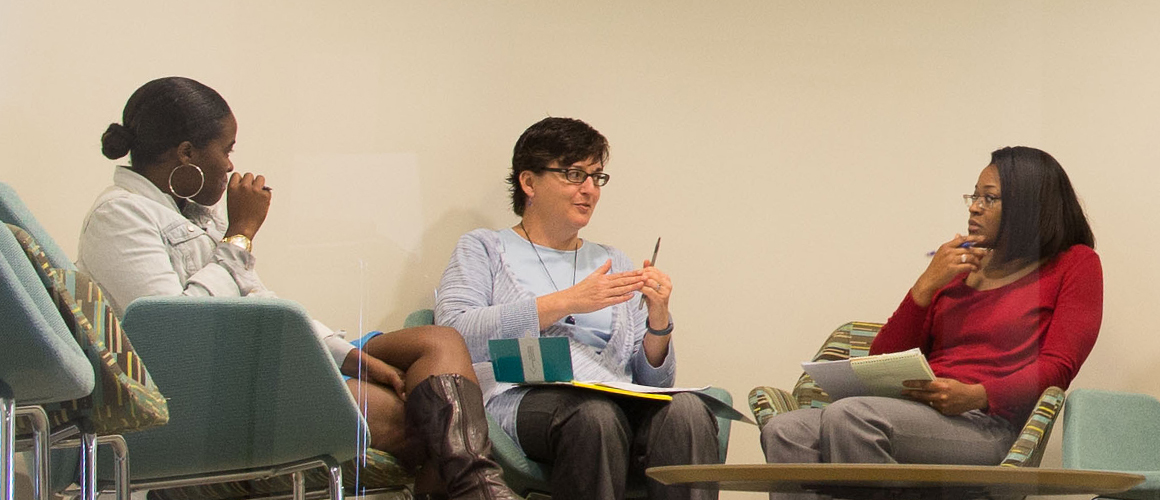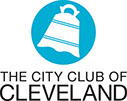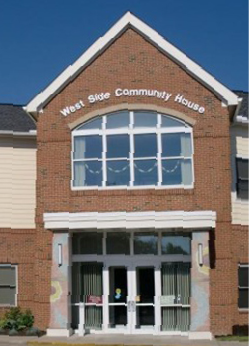
Q&A
Resilient Families Senior Program Officer Christie Manning discusses the importance of partnerships.
Q: Are there examples of partnerships that evolved organically over the last year between the Foundation and community stakeholders?
CM: There’s a group of community organizations that I call our Parent Leadership Roundtable. It’s comprised largely of grantee representatives,
but there are some individuals outside of our grantee organizations who
have an active interest in parent leadership development and also join us. This group comes together several times a year to learn from one another’s practices, and its work is geared toward achieving a deeper understanding
of how each group fits together in broad efforts around building parental leadership throughout our community.
In 2015, there was a moment during one of our meetings where I felt like
we were really getting somewhere. Specifically, I had a couple of the members of the roundtable tell me that I needed to approach how I led the meetings a little differently. And I really appreciated that – I think it marked
a shift toward deeper partnership, because they were suggesting that other members of the group take turns setting the agenda and leading the meetings, and that I step back. This shift speaks to the essence of partnership – there’s give and take, responsiveness to mutual priorities,
and a real effort to build something together.
Q: Does the significance of partnership resonate strongly in the neighborhood these days?
CM: It does, and it’s about ways in which you work with families to achieve optimal effectiveness—ways that drive toward their goals, as opposed to a more paternalistic approach. True partnership leverages a value system that works toward providing resources with and for families—one that appreciates them as the experts in their own lives, and also as potential resources to other families. That’s not always the way organizations have worked with families in the past.
Q: How has concept of partnership evolved since you joined the Foundation in 2013?
CM: I’d say the evolution is probably more in practice than in theory. Initially, our challenge here was to simply find partners or potential partners—in part because we’re speaking a language that’s a bit foreign to many in our local community, this language of strengthening families, of parent support, of protective factors. Some of the language we use took a lot of explaining, frankly. That’s part of the reason why we decided to sponsor the Resilient Families Speaker Series, in partnership with the City Club of Cleveland. Even coming into the third year of our new program strategies, we still had to explain to people what Resilient Families really means. We had to explain that we’re talking about looking at the entire family together, and finding ways to build upon the strengths that already exist within that family unit, and supporting that family in working toward their goals—not telling them what we think they need to do.
Over the past few years, an old saying continues to come to mind: Before parents care what you know, they want to know that you care. The basis of that is that you have to develop a relationship and trust with a family before they want to hear what you have to say and before they want to let you into their lives. That’s partnership in action, and it’s what we support our grantees to implement with families, and also the approach we can take in partnering with our grantees.
Q: What advice would you give community stakeholders, grantees or potential grantees who seek to forge partnerships with the Foundation?
CM: Be as honest as possible – with us, with your constituents and especially with yourself – about the challenges that come with doing this work. I’m not implementing the daily work on the ground, so I won’t know what the challenges and barriers are unless I hear it from our grantees and partners. And there might be some resources that we can bring to bear in addition to funding, which is typically a key factor in forming these relationships. These include creating opportunities for people to learn about a strategy or tactic that can be useful to them, or having opportunities to come together in a room and explore partnering strategies that can benefit the families they’re working for and with. I recognize that the honesty I recommend comes with risk, but in the end it’s what enables true partnerships to form, and measurable impacts to be made.
ADDITIONAL
GRANT SPOTLIGHTS






